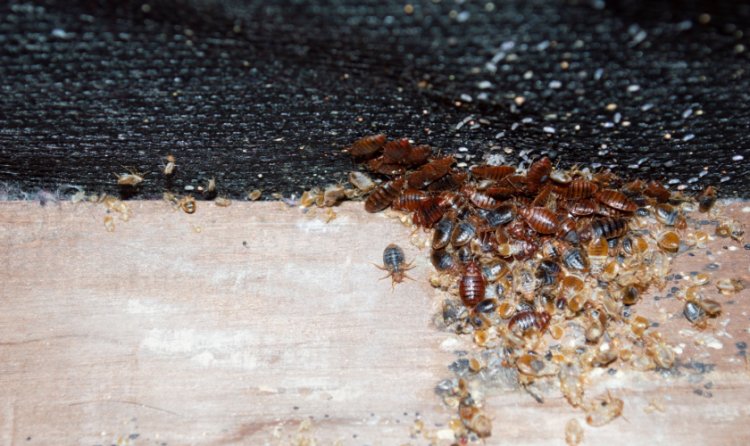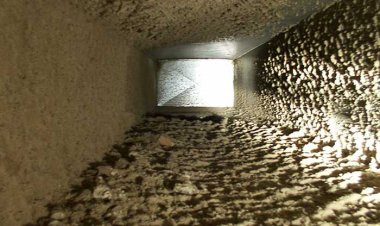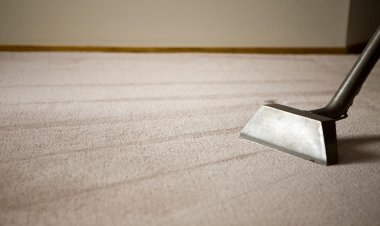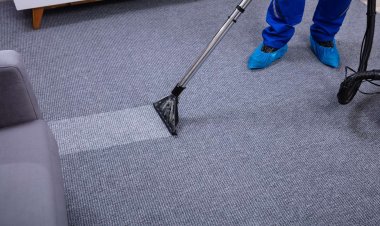Can Bed Bugs Affect Your Health?

Bed bugs are small, flat, reddish-brown insects that feed on human blood. They are commonly found in bedding, mattresses, furniture, and carpets, and can easily spread from one place to another through clothing, luggage, or other personal belongings. While bed bugs are generally not known to transmit diseases to humans, they can still have a significant impact on our health and well-being.
In this blog, we'll explore the various ways bed bugs can affect your health and what you can do to prevent and treat bed bug infestations.
How can bed bugs affect your health?
Physical Health Effects
Bed bugs are not known to transmit diseases to humans, but their bites can cause a range of physical health effects. Bed bug bites typically appear as small, red, itchy welts on the skin. Some people may develop an allergic reaction to bed bug bites, which can cause severe itching, swelling, and even blisters.
Scratching bed bug bites can also lead to secondary skin infections, such as impetigo, cellulitis, or lymphangitis. In rare cases, people may experience anaphylactic shock, a severe allergic reaction that can cause difficulty breathing, a rapid heartbeat, and loss of consciousness.
Mental Health Effects
Bed bug infestations can also have a significant impact on your mental health and well-being. The stress and anxiety associated with a bed bug infestation can lead to insomnia, depression, and other mental health problems.
In some cases, bed bugs can also trigger or exacerbate pre-existing mental health conditions, such as anxiety disorders, obsessive-compulsive disorder (OCD), or post-traumatic stress disorder (PTSD). People who have experienced bed bug infestations may develop a persistent fear of bed bugs, which can lead to avoidance behaviors and social isolation.
Prevention and Treatment
Prevention
- The best way to prevent bed bug infestations is to be proactive. Here are some steps you can take to prevent bed bugs from entering your home:
- Inspect second hand furniture, mattresses, and clothing before bringing them into your home. Bed bugs can easily hide in these items, so it's essential to check them thoroughly.
- Keep your home clean and clutter-free, especially in areas where bed bugs are commonly found, such as bedrooms and living rooms. This makes it easier to spot any bed bugs that might be hiding in your home.
- Vacuum carpets, rugs, and upholstery regularly to remove any potential hiding spots for bed bugs. Pay special attention to cracks, crevices, and seams, where bed bugs like to hide.
- Seal cracks and crevices in walls, floors, and furniture to prevent bed bugs from entering your home. Use caulk or sealant to fill any gaps or cracks you find.
- Use mattress and box spring encasements to prevent bed bugs from infesting your bed. These encasements are designed to trap bed bugs inside, preventing them from escaping and infesting your home.
Treatment
- If you suspect that you have a bed bug infestation in your home, it's essential to take immediate action to treat the problem. Here are some treatment options for bed bug infestations:
- Hire a professional pest control company to treat your home with insecticides. Professional pest control companies have access to stronger insecticides than those available to the general public, making them better equipped to handle severe bed bug infestations.
- Use heat treatment to kill bed bugs by exposing infested items to temperatures of 120°F or higher. Heat treatment is an effective way to kill bed bugs, but it can be expensive and time-consuming.
- Use cold treatment to kill bed bugs by exposing infested items to temperatures of 0°F or lower. Cold treatment is less effective than heat treatment but can still be useful in some situations.
- Use non-chemical treatments, such as steam cleaning or vacuuming, to kill and remove bed bugs. These treatments are less effective than insecticides, but they can still be useful in some situations.
Conclusion
While bed bugs are not known to transmit diseases to humans, they can still have a significant impact on our health and well-being. Bed bug bites can cause physical health effects such as itching, swelling, and secondary skin infections, while bed bug infestations can cause mental health effects such as stress, anxiety, and insomnia.
Preventing bed bug infestations is key to protecting your health, and there are many steps you can take to prevent and treat bed bug infestations. If you suspect that you have a bed bug infestation in your home, it's important to take immediate action to treat the problem and prevent further infestations.
Read More: Why Is It Hard To Remove Pests In The Summer?

 drseervi
drseervi 















